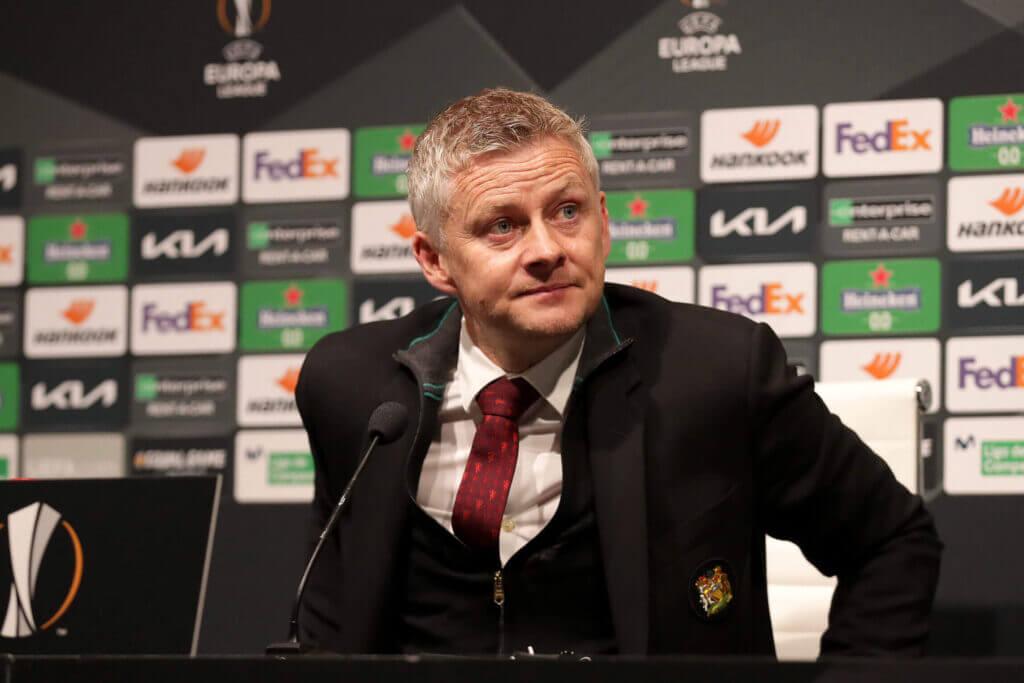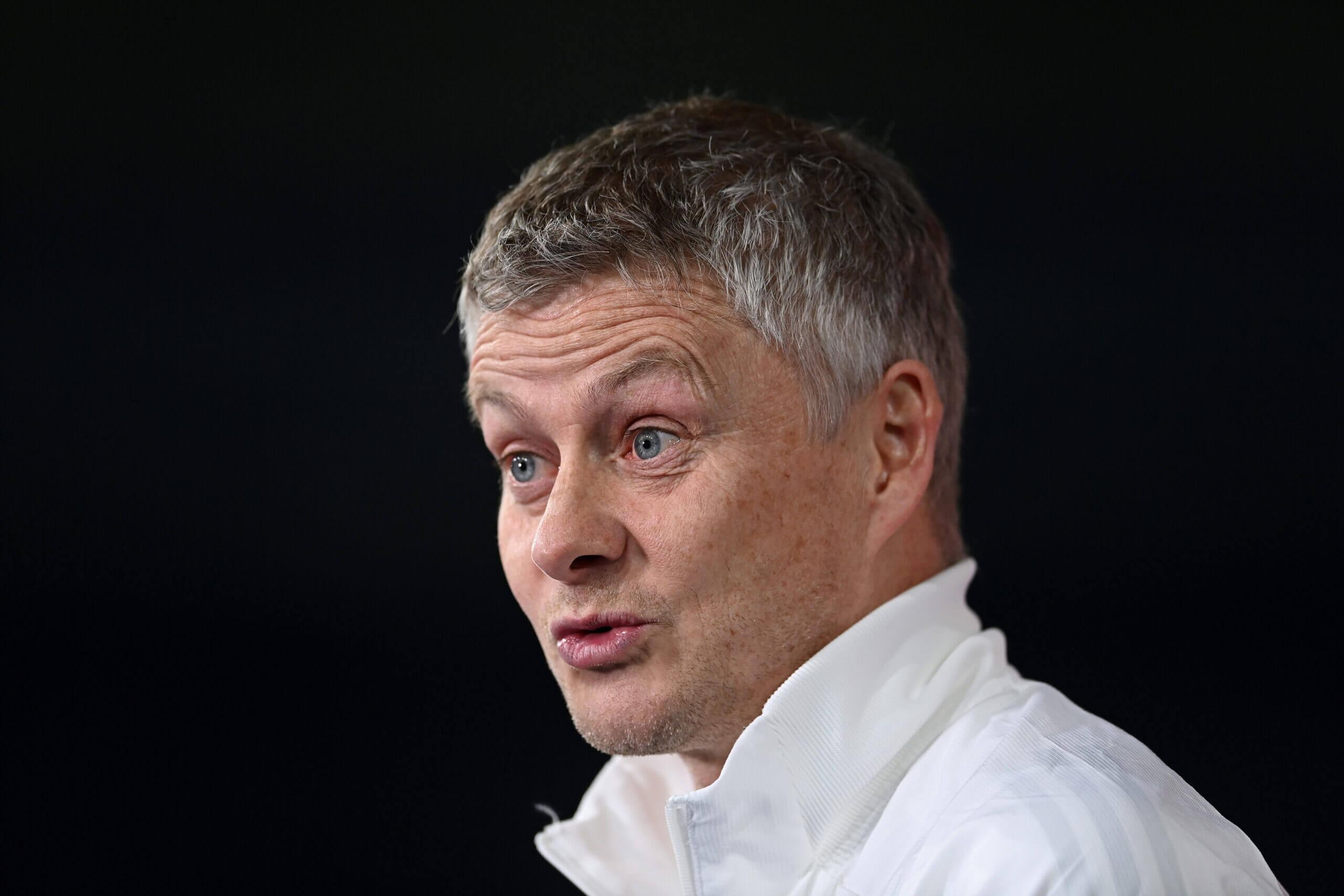No longer an interim or baby-faced assassin, Solskjaer is his own Manchester United manager

Given the right mood, Pep Guardiola will discuss possession as a tool in football.
Jurgen Klopp is a champion of gegenpressing and will bring up the emotional quality of the game, and what is needed from his Liverpool side to get the results he wants.
Thomas Tuchel carries with him a motivation to construct a team to carry solutions to every problem. His players must be sharp in the mind and the body, able to execute plans for every scenario, no matter how difficult.
Mikel Arteta is building towards a long-term goal of 4-3-3 and “carpet football” at Arsenal – everything is part of a process.
Jose Mourinho has many techniques and has gifted many famous quotes to the English language, but his spells at clubs have distinct stages: first, “my team against the world”, then “my special few against the world” and then finally “myself against the world”.
These are all managers who are known quantities. Their press conferences have a rhyme and rhythm to them.
And then there is Ole Gunnar Solskjaer, making jokes about (not) feeding his son.
He was at it again on Wednesday, answering a question about Manchester United’s home form by revealing the club have changed the colour of the banners covering the vacant seats in the lower tiers at Old Trafford during these behind closed doors games to avoid them matching their team’s red shirts. “Some of the players have mentioned that split-second decision you have to make where you look over your shoulder to see if your team-mate is there or not and the red shirt is on a red background with red seats,” he said.
More than two years into his time as United manager, and we are still not sure of the specifics of Solskjaer’s schemes. What he says in public, therefore, helps us to get closer to learning the methods to the mythology.
This season has seen Solskjaer become one of the more efficient and often charismatic managers in press conferences, perhaps emboldened by his team’s relatively good form. Long gone is the “Aww shucks!” demeanour of his interim spell two years ago, which was littered by constant references to United’s great teams of the past.
It is surely not a coincidence he has had to speak less over the past year or so, either. In the age of lockdown and press conferences conducted over Zoom, journalists are rarely afforded more than one question a session. The United manager’s typical pre-match briefings rarely last longer than 20 minutes, while his post-match summations hover around the seven-minute mark.

Solskjaer has grown in confidence when speaking to the media (Photo: Laurence Griffiths/The FA via Getty Images)
The spikier replies to pundits have also faded following the arrival of Bruno Fernandes 14 months ago and his team’s upward trajectory. The Solskjaer of today is less likely to tell Robin van Persie “I’m not in medieval times” as he did in January 2020 after his fellow former United striker criticised him for smiling in the wake of a 2-0 defeat by Arsenal. Now, Solskjaer simply delights in his victories.
He references the days of Sir Alex Ferguson less and less in conversation now but there are similarities between him and the United great, in particular their dislike for individual criticism of players.
Despite a career-nadir season for Anthony Martial, Solskjaer is often loath to single him out. After losing 2-1 at home to Sheffield United in January with Martial playing as the No 9, he said, “Well, I think the whole team will probably get criticism tonight, and myself as well. I don’t think Anthony is exempt from that. We all should be criticised because we didn’t perform. I know ‘Anto’, he’s been working really hard in training, working on his finishing, working on his movement, so I’ve got no doubts that he will come good.”
That was a galling defeat where United blew the opportunity to leapfrog Manchester City and go back to the top of the Premier League table but look at Solskjaer’s use of language: first bringing up the collective struggles of his team, and then himself, before mentioning his off-form striker.
His use of Martial’s nickname suggests a closeness between player and manager; something that has become a habit for the Norwegian throughout this season. Then the words of encouragement. Solskjaer knows he has more to gain if he conjures up the Martial form of old, rather than call him disappointing, and so he caps off his answer with a positive.
Solskjaer has also been very canny in his remarks about Paul Pogba this season, discussing the Frenchman’s poor form at the start as merely a matter of fitness from a curtailed pre-season and having COVID-19, rather than getting involved in the minutiae of agent Mino Raiola’s comments about his client’s future.
There is precision in how the United manager describes an often-imprecise football team and Solskjaer, for the most part, manages the expectation of his side — and of himself — with great aplomb.
As we approach the end of the season and conversation moves from on-field strategy and tactics to off-field logistics and transfer news, he has become more focused, often referring back to his previous answers on players. Erling Haaland, for instance, “is his own man”, while Solskjaer maintains both Dean Henderson and David de Gea are “number ones” when he is asked.
He has even referred to feeding his sons, Noah and Elijah, before, as he did when discussing Tottenham’s Son Heung-min at the weekend. After the 6-1 defeat by Spurs in October, Solskjaer said of a spat between Erik Lamela and Martial, “If that was my son, he would live on water and bread for two weeks. That’s not how I want my players to react.”
The United manager has repeatedly said the club want Edinson Cavani to stay, and often talks about the social life and Manchester culture his players are missing out on owing to lockdown restrictions.
There are also the jokes: about his son, saying he is a “chicken korma sort of guy” and more. He often strokes his chin with his left hand during post-match press conferences when trying to explain match-day events, a tiny window into a mind well aware of how his discussions will be placed onto YouTube for millions to watch.
There is something to the language Solskjaer uses when he describes football.
In January, after defeating Liverpool in the FA Cup, he first used the phrase “layer by layer” to describe the process of growth of United. He has used similar phrasing, akin to the painting of a house, to media in his homeland. “Magic,” “X-factor” and “zip” are his go-to descriptors for a good team performance, and are often the qualities found lacking when United suffer defeat.
Whereas at the start of the season the United manager was often found balancing his footballing wants and his footballing needs, a month from its end he is getting closer to creating the spine of a side that, with proper funding and further tactical developments, could one day compete for the biggest silverware in England and in Europe.
Elite managers are expected to bring with them a “philosophy”, a style of strategic thinking that informs everything they do. When one top-level manager arrives at a top club, you can expect a flurry of conversations about what his team will look like, which players will benefit from his appointment and who will be moved aside from a clear blueprint.
Solskjaer’s United are different because the blueprint is being developed on the job. He is refining and distilling systems the longer he spends time in the dugout, at the training ground, and indeed, in front of the media.
He’s no longer an interim, a baby-faced assassin, a PE teacher, or even the Ferguson disciple.
He is Ole Gunnar Solskjaer, his own manager, doing something entirely of his own.
(Top photo: Gonzalo Arroyo/UEFA via Getty Images)

 102
102 